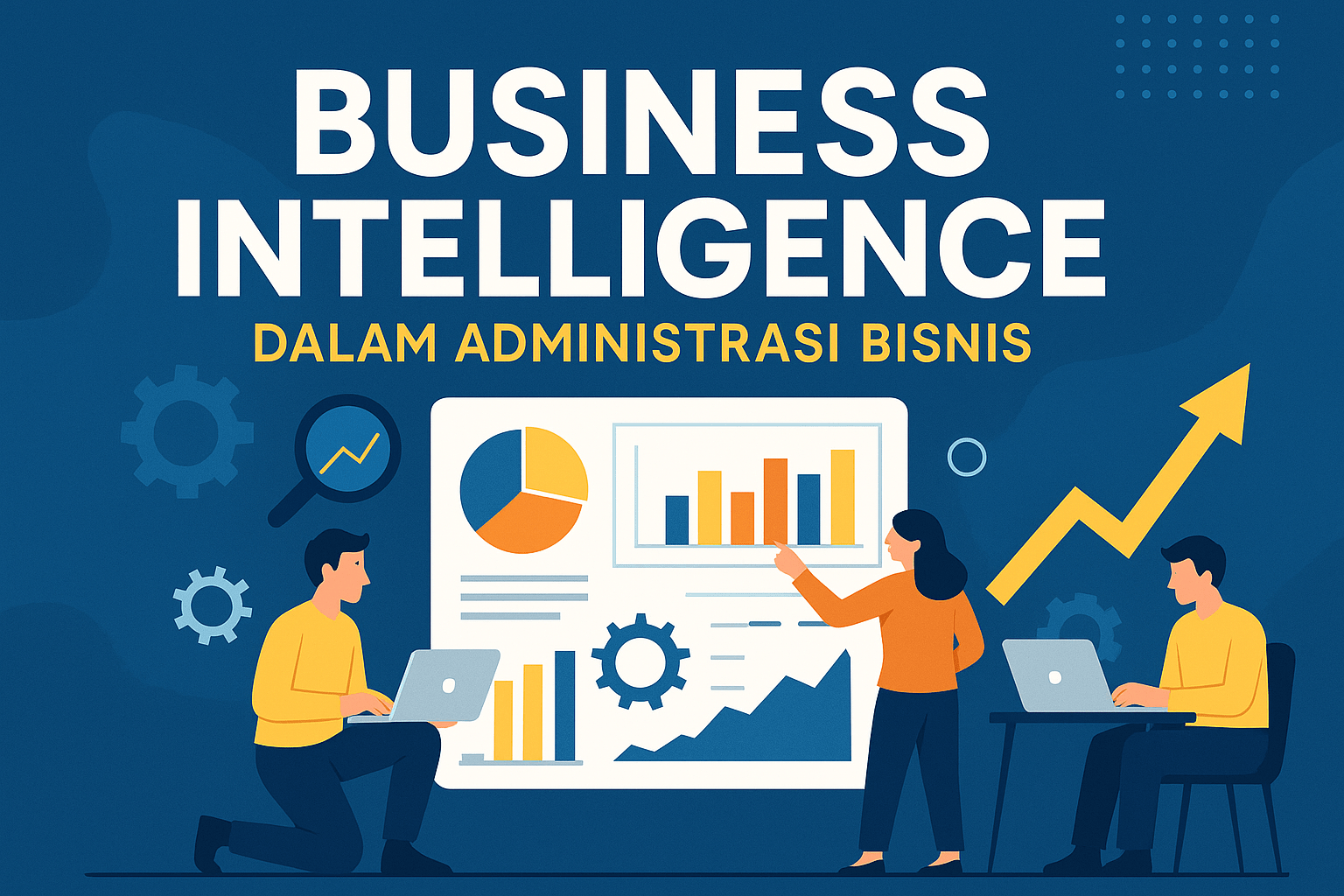
Business Intelligence: The Secret Weapon of Business Administration in the Digital Age
The Importance of Business Intelligence in the World of Business Administration
Business administration needs business intelligence to face the fast-paced and dynamic digital era. Today, business decisions must be supported by accurate and valid data. Therefore, Business Intelligence (BI) comes as a strategic solution to help organizations make sense of data, discover hidden patterns, and make informed decisions. Data that was originally just numbers can be turned into actionable business insights with BI.
Definition and Functions of Business Intelligence
Business Intelligence is a set of procedures, tools, and technologies used to collect, integrate, analyze, and display business data with the aim of assisting the decision-making process with robust data. Supply chain analysis, transaction data processing, marketing trend mapping, and transaction data analysis are some of the key functions of Business Intelligence in business administration. Business Intelligence also enables organizations to get real-time information about internal performance, consumer behavior, market trends, and growth predictions.
The Strategic Role of Business Intelligence in Business Administration
Business Intelligence helps business administration make better decisions and improve operational efficiency. BI speeds up financial reporting, finds inefficient procedures, and pinpoints market opportunities. Interactive dashboards and automated reports allow users to track business performance in seconds without waiting for weekly or monthly reports. This enables faster decision-making based on the latest data, which has a direct impact on the company’s competitiveness.
The Effect of Business Intelligence on Customer Service and Satisfaction
One of the biggest advantages of Business Intelligence is the ability to analyze customer behavior. BI allows companies to understand customer needs, preferences, and shopping habits through data collected from various channels. With this understanding, marketing and customer service strategies can be tailored in a more relevant and personalized manner. As a result, customer satisfaction increases, loyalty increases, and there are more opportunities for growth.
Case Study: Financial Efficiency through Business Intelligence
A national retail company implementing BI for its financial reporting process is a real-life example of implementing Business Intelligence. Before BI was used, reporting was done manually, which was time-consuming and prone to errors. By using BI, the company was able to create reports thirty percent faster and with a higher level of data accuracy. In addition, finance teams have the ability to spot inefficient spending and use the data to create cost-saving plans.
Telkom University’s Undergraduate Business Administration Program Excellence in BI Learning
The Bachelor of Business Administration program at Telkom University discusses how information technology can be integrated into the business world, including Business Intelligence. In addition to learning the basic theory of BI, students are also taught how to use tools such as Power BI, Tableau, and Google Data Studio. This industry-tailored curriculum encourages students to do real projects with business data from large companies to local MSMEs. Project-based learning and case-based learning approaches also offer advantages, as they make students better prepared to face challenges in the world of work.
Student Portfolio and Business Intelligence Project
Students have the opportunity to engage in various practical BI projects during their studies. Power BI-based sales analysis of MSMEs, visualization of startup consumer growth, and creation of financial monitoring dashboards of social organizations are some of them. These projects not only help you learn more, but they also give you a strong portfolio to help you work later on. In addition, working with industry partners such as PT Telkom Indonesia, state-owned enterprises, and tech startups provides a rewarding experience.
Application, Scholarship, and Research Process
To enroll at Telkom University, prospective students can use official channels, invitations, or scholarships. The official campus page has complete information. Telkom University also offers a variety of scholarship programs, including Academic Achievement Scholarships, Research Scholarships, and Excellence Scholarships. In addition, students can take part in research that focuses on the use of BI in industry, education, and MSMEs. They can do this by working on their final project or in collaboration with teachers.
Media Recognition and Academic Reputation
National media noticed this study program as a pioneer in incorporating Business Intelligence technology into the business administration curriculum. In a coverage, students from Telkom University created a BI system for digital cooperatives used in three provinces. This program is great for those who want to master data-driven business administration due to curriculum innovation and student achievement.
Digital Presence and Educational Content
In addition, Telkom University’s S1 Business Administration Program participates in various online platforms and social media. Instagram, YouTube, and LinkedIn are where students can access instructional content on Business Intelligence. To enhance students’ understanding of real-world applications of BI, tutorials, webinars, and case studies are regularly provided. An excellent video shows a simulation of using Power BI to track the financial performance of a virtual company with real-time data.
Conclusion: Business Intelligence as the Key to Successful Modern Business Administration
Business Intelligence has become an essential component of contemporary business administration management. Telkom University’s Bachelor of Business Administration program offers a comprehensive and applicative approach in teaching BI, making its graduates ready to face the challenges of a data-driven industry. With BI knowledge, one can increase operational efficiency, improve marketing strategies, better understand customers, and of course, make better data-driven decisions.
Tags : S1 Administrasi Bisnis | Administrasi Bisnis | S1 Administrasi Bisnis Telkom University
Reference
Turban, E., Sharda, R., & Delen, D. (2021). Decision Support and Business Intelligence Systems. Pearson.
Laudon, K. C., & Laudon, J. P. (2020). Management Information Systems: Managing the Digital Firm. Pearson.
Data & laporan riset internal S1 Administrasi Bisnis Telkom University.